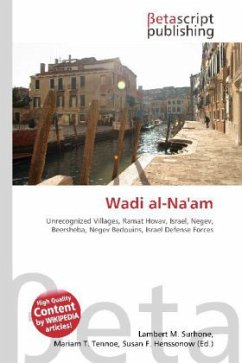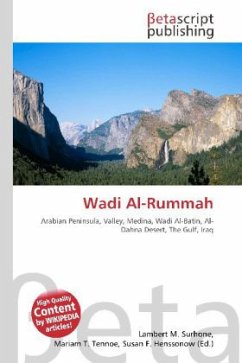Please note that the content of this book primarily consists of articles available from Wikipedia or other free sources online. Wadi al-Na''am is an unrecognized village in the Negev/Naqab Desert in Southern Israel. The nearest official settlement is Beersheba. The village is home to about 5,000 Bedouin that live mainly in tents and tin shacks less than 500 meters away from a toxic waste dump, largely surrounded by the Ramat Hovav industrial zone and military areas including an Israel Defense Forces live-fire range. Because the village is unrecognized, it is ineligible for basic services and subject to periodic house demolitions, even though the inhabitants hold Israeli citizenship.After 1948, the new State of Israel declared 85% of the desert "State Land." From this point on, all Bedouin habitation and agriculture on this newly-established State Land was retroactively considered illegal. Negev lands the Bedouin had inhabited upwards of 500 years was rendered off-limits to Arab herders and Bedouin in the region were no longer able to fully engage in their sole means of self-subsistence agriculture and grazing.
Bitte wählen Sie Ihr Anliegen aus.
Rechnungen
Retourenschein anfordern
Bestellstatus
Storno








